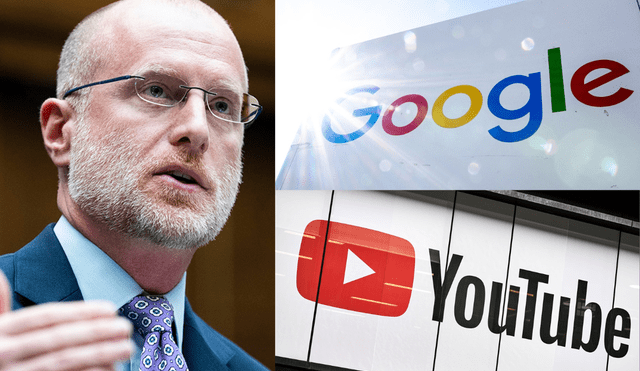U.S. authorities investigate Google over alleged religious discrimination on YouTube TV
The investigation raises important questions about censorship and the role of tech giants in content distribution.

The U.S. Federal Communications Commission (FCC) is probing Google over claims of religious discrimination on YouTube TV. The allegations stem from YouTube TV's refusal to carry the channel Great American Family, a Christhian religious broadcaster. The controversy has raised concerns about the role of tech giants in silencing faith-based content and sparking discussions on censorship in the digital age.
In a move that raises concerns over digital censorship and tech accountability, the Chairman of the Federal Communications Commission (FCC), Brendan Carr, has sent a formal letter to Google requesting a detailed briefing about allegations that YouTube TV is discriminating against faith-based programming.
FCC Chairman alleges potential discrimination against faith-based content
Chairman Carr, in a letter to Google CEO Sundar Pichai and YouTube CEO Neal Mohan, expressed concerns stemming from complaints received from broadcasters. He specifically cited allegations from Great American Media, which claims YouTube TV "refuses to carry" its Great American Family network. Carr's post on X emphasized the timing of these allegations, aligning with what he perceives as an "unprecedented — and unacceptable — surge in censorship" within American public discourse.
Great American Media contends that YouTube TV is deliberately marginalizing faith-based and family-friendly content. They highlight the rapid growth of their Great American Family network, noting its availability on numerous cable and streaming services, except for YouTube TV. This claim raises questions about the criteria YouTube TV uses when selecting networks for its platform.
FCC's limited authority and potential regulatory expansion
Chairman Carr acknowledged the FCC's current limited authority over virtual multichannel video programming distributors (vMVPDs) like YouTube TV. However, he emphasized that the agency is actively reviewing whether to expand its regulatory scope to include these platforms. This review suggests a potential shift towards greater oversight of streaming services and their content curation practices.
Carr's letter also addressed Google's reliance on Section 230 of the Communications Decency Act, which shields online platforms from liability for user-generated content. He signaled a desire to limit these protections, particularly in cases where platforms are accused of viewpoint discrimination. This stance underscores the ongoing debate about the balance between platform immunity and accountability.
Google denies discrimination policies
In response to Carr's letter, a YouTube spokesperson told The Verge that the platform does not have any policies prohibiting religious content. They reitarated that they "welcome the opportunity to brief the FCC on YouTube TV’s subscription service and the strategic business decisions we make based on factors like user demand, operational cost and financial terms, and to reiterate that we do not have any policies that prohibit religious content." This statement sets the stage for a detailed explanation of YouTube TV's network selection process.
Chairman Carr instructed Mohan and Pichai to provide a briefing on the negotiation process for network carriage on YouTube TV, explicitly requesting information on "the potential role of viewpoint-based discrimination." This demand for transparency aims to shed light on the criteria and considerations that influence YouTube TV's content offerings.
Broader concerns about tech company censorship
Carr's concerns extend beyond YouTube TV, reflecting broader anxieties about tech companies' role in shaping public discourse. He claimed that "in too many cases, tech companies silenced individuals for doing nothing more than expressing themselves and in the digital town square." This sentiment aligns with ongoing debates about free speech and content moderation on online platforms.
It is also important to note that Google, and Youtube specifically, are under other forms of scrutiny. Ohio Republican Rep. Jim Jordan has subpoenaed Google, seeking information on whether YouTube removed videos following requests from the Biden administration. Furthermore, Great American Media already maintains a significant presence on YouTube with channels like Pure Flix and Great American Family, adding another layer of complexity to the current dispute. The outcome of the FCC's inquiry and the potential regulatory changes could have significant implications for the future of streaming content and platform accountability.













